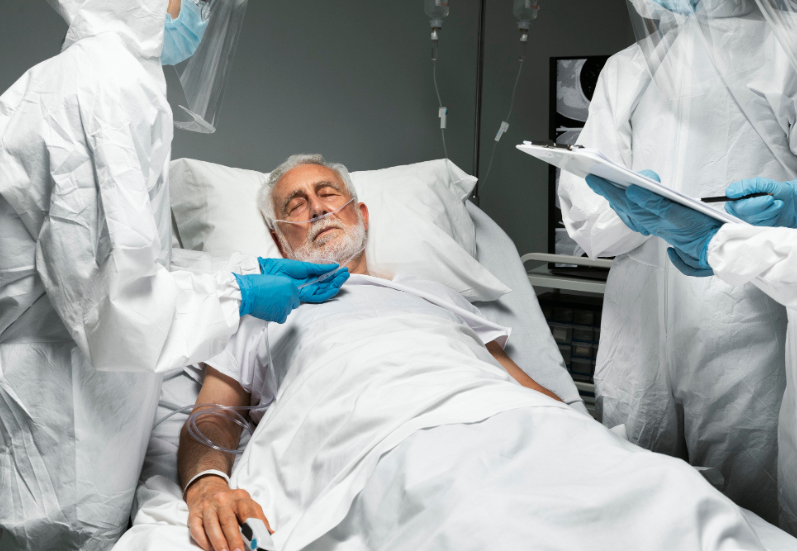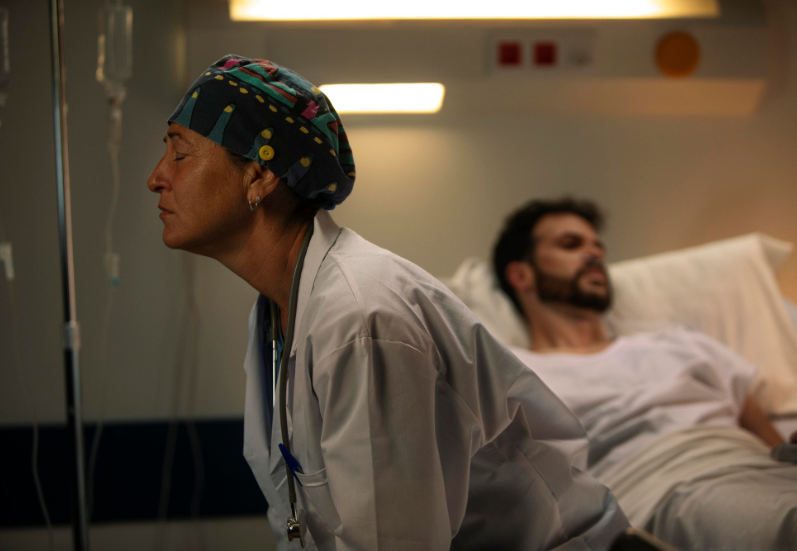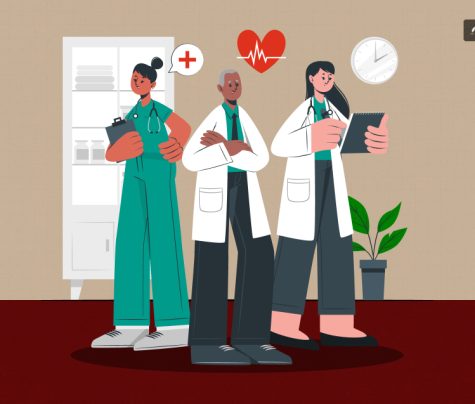
In case you are wondering how to prove wrongful death due to medical negligence, I have you covered!
In a wrongful death lawsuit, proving negligence necessitates strong evidence of the defendant’s liability. Crucial evidence often encompasses medical records, accident reports, witness statements, and expert testimony.
Plaintiffs must construct a narrative that links the defendant’s actions directly to the fatal accident. While challenging, a well-documented case can provide justice for grieving families and hold negligent parties accountable.
Understanding Wrongful Death Due to Medical Negligence

When a patient passes away as a result of a healthcare provider’s failure to deliver the proper standard of care, this is known as wrongful death due to medical negligence.
Families may find this circumstance devastating, as it frequently involves a catastrophe that could have been avoided. Let’s break this down to get a better understanding.
Medical negligence is when physicians, nurses, or other healthcare professionals make mistakes that a professional would not make.
For instance, there could be fatal outcomes if a doctor misdiagnoses a dangerous illness or neglects to perform necessary surgery.
Families may be able to file a wrongful death claim when someone passes away as a result of such carelessness. This legal action can offer monetary compensation for the loss and aims to hold the guilty party accountable.
Additionally, compensation might cover medical expenses, funeral costs, lost income, and emotional suffering.
It’s important to note that not all unfortunate outcomes in medicine are due to negligence. Sometimes, despite the best efforts of healthcare providers, patients may still die from their conditions.
However, if there is clear evidence that a mistake was made—like ignoring test results or improper treatment—then it may qualify as wrongful death.
Suppose you suspect that a loved one has died due to medical negligence. In that case, it’s crucial to consult a legal expert specializing in these cases. They can help you understand your rights and the steps to seek justice.
Medical Mistakes Leading to Wrongful Death
Before jumping into finding evidence for wrongful death due to medical negligence, there is something that you need to understand. And these are the mistakes.
Common medical mistakes leading to wrongful death can be devastating for families. Understanding these errors can help raise awareness and potentially save lives.
Here are some of the most frequent mistakes:
- Misdiagnosis: One of the biggest issues is when a doctor misdiagnoses a condition. For instance, if teh doctor mistakes a serious illness like cancer for something less severe, it can delay crucial treatment and lead to fatal outcomes.
- Surgical Errors: Mistakes during surgery, such as operating on the wrong body part or leaving instruments inside a patient, can have dire consequences. These errors may result in significant complications or even death.
- Medication Errors: Incorrect dosages or administering the wrong medication can be life-threatening. For example, giving a patient an overdose of a powerful drug can lead to severe health issues or death.
- Failure to Monitor: After procedures or treatments, patients need careful monitoring. If healthcare providers fail to keep an eye on vital signs or other critical indicators, they might miss signs of distress that could lead to death.
- Inadequate Follow-Up Care: Sometimes, patients are not given proper follow-up care after treatment. This lack of attention can allow conditions to worsen without detection, leading to tragic outcomes.
Contributing Factors to a Wrongful Death Claim
To prove negligence, the victim must establish four key elements.
- Legal Obligation: The defendant owed the deceased a duty of care.
- Breach of Duty: The defendant disregarded this obligation through their deeds or inactions.
- Causation: The breach directly caused the fatal injury or death.
- Damages: The plaintiff suffered measurable losses as a result of the death. These elements create the foundation for a wrongful death claim, but proving them requires strong and specific evidence.
Key Evidence Needed to Prove Negligence
Now that you are aware of what wrongful death due to medical negligence is about, it is time for you to learn about the evidence.
Yes, that’s right! These can help you get the right compensation that you deserve. So, without further ado, let us get right into it:
Evidence of Duty of Care
The first stage is proving that the defendant was legally required to take specific action to keep the deceased safe.
An experienced wrongful death lawyer can establish this by identifying contractual obligations, professional standards, or general societal norms.
Examples include traffic laws for drivers or medical standards for healthcare professionals.
Proof of Breach of Duty
Evidence of the defendant’s wrongful actions or negligence is required to show they violated their duty.
Documentation such as photographs, eyewitness testimony, or expert reports can illustrate how the defendant’s behavior deviated from what was expected.
For example, evidence of speeding or running a red light in a car accident case could establish this breach.
Causation Evidence
A critical component is linking the defendant’s actions to the death. Medical records, forensic evidence, or expert testimony can help demonstrate this connection.
In some cases, recreations of the incident or analysis by accident reconstruction specialists may strengthen this claim by illustrating how the breach led directly to the fatality.
Documentation of Damages
Families that want compensation must show that the death caused both tangible and intangible damages.
These include funeral expenses, loss of income, medical bills, and the emotional suffering of the surviving family members.
Documentation such as invoices, tax records, and psychological evaluations can support claims for these damages.
Role of Expert Testimony
In many wrongful death instances, expert witnesses are crucial.
Medical professionals, forensic specialists, and accident reconstruction experts provide objective analysis that helps clarify complex facts for the court.
Their testimony often bridges gaps in understanding and adds credibility to the evidence presented.
Importance of Preserving Evidence
Timely action in gathering and preserving evidence is vital. As time passes, witness accounts, security footage, and tangible evidence from the scene may deteriorate or become unavailable.
Legal teams often work quickly to secure these critical materials to ensure they remain admissible and relevant.
What Compensation Can You Get With a Wrongful Death Claim?
Losing a loved one is never easy, and it becomes even more heart-wrenching when their death is caused by someone else’s negligence or wrongful actions. If you’re dealing with such a tragedy, you may be entitled to file a wrongful death claim to seek compensation. But what does this compensation cover?
Filing a claim for wrongful death due to medical negligence can help a family recover the financial damages.
Although no amount of compensation can help you recover from the passing of a loved one, the compensation is designed to ease the financial burden and provide justice for the loss.
Types of Compensation You May Receive
There are two primary types of compensation that you can get. They are for the economic damages and the non-economic damages.
Compensation for economic damages is the measurable financial losses you face due to your loved one’s passing. They include:
- Medical Expenses: You can claim these costs if your loved one received medical treatment before death.
- Funeral and Burial Costs: Funerals can be expensive, and these costs are often recoverable.
- Lost Income: If the deceased was a breadwinner, you could claim the income they would have earned had they lived.
- Loss of Benefits: Pensions, health insurance, or other employment benefits your loved one would have provided are also compensable.
On the other hand, compensation for non-economic damages is for the emotional and intangible losses, such as:
- Loss of Companionship: The emotional pain of losing a partner, parent, or child is immeasurable, but courts recognize this loss.
- Pain and Suffering: This includes the emotional distress your family endures after the loss.
- Loss of Guidance: For children, the absence of a parent’s love, care, and guidance is considered.
- Punitive Damages In some cases, the court may award punitive damages. These aren’t meant to compensate you directly but to punish the wrongdoer for particularly reckless or malicious behavior. They also serve as a deterrent to prevent similar actions in the future.
Factors That Affect Compensation
The amount you may receive depends on several factors:
- The Deceased’s Age and Health: Younger individuals with longer expected lifespans often result in higher claims.
- Their Earnings and Potential: The court evaluates their income and career prospects.
- Your Relationship: Spouses, children, and dependents are more likely to receive higher compensation.
Wrapping It Up!
Proving negligence in a wrongful death case is a detailed and rigorous process requiring diverse forms of evidence.
Families can prove duty, breach, causation, and damages to obtain justice and accountability for their loss.
While no outcome can reverse the tragedy, a well-supported case ensures that the legal system addresses the negligence that led to it.
Read Also:
- What Are Your Options When You Have Mesothelioma?
- Protecting Your Family From Negligence: A Comprehensive Guide
- How a Personal Injury Lawyer Can Help You Get the Compensation You Deserve











0 Reply
No comments yet.